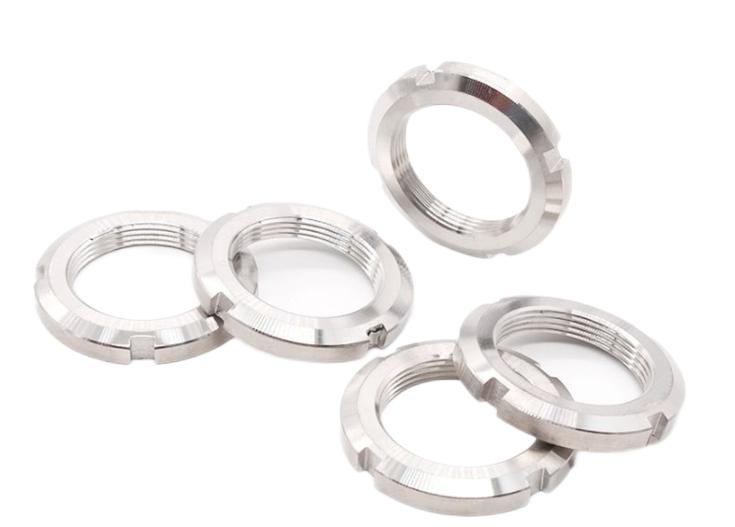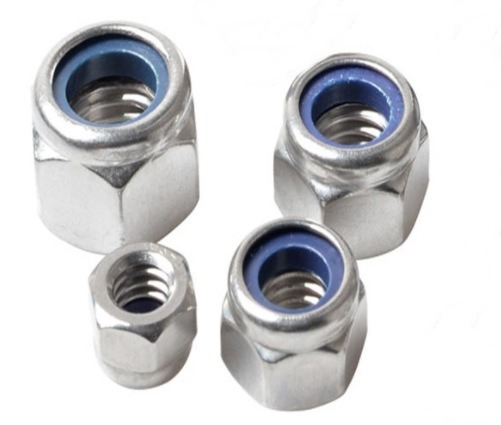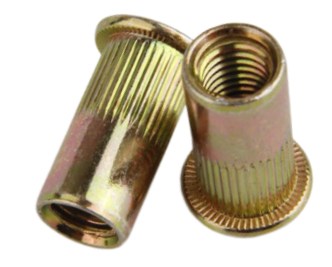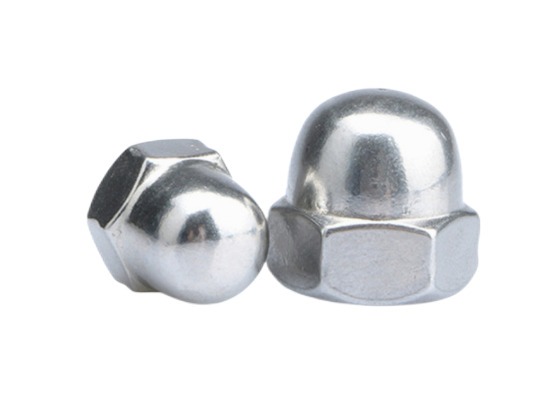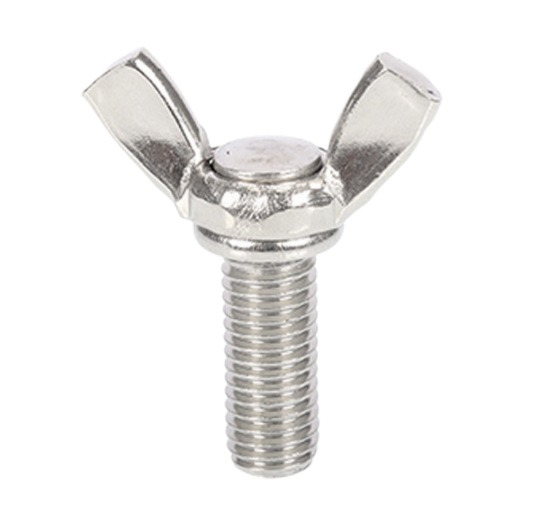5 Common Types of Self-locking Nuts
The self-locking nut is mainly used to prevent looseness and vibration. For special occasions. Its working principle is generally self-locking by friction. The self-locking nuts are classified according to their functions, including nylon ring embedded nuts, necked nuts and metal locking devices. They are all effective torque type lock nuts. This article will introduce 5 types of self-locking nuts.
What Are Self-locking Nuts?
The self-locking nut is a new type of high anti vibration and anti loosening fastening part, which can be used in various mechanical and electrical products with a temperature of – 50~100 ℃. The demand for nylon self-locking nuts in aerospace, aviation, tank, mining machinery, automobile transportation machinery, agricultural machinery, textile machinery, electrical products and various types of machinery has increased dramatically, because its anti vibration and anti loosening performance is much higher than other anti loosening devices, and its vibration life is several times or even dozens of times higher.
What is the Working Principle of Self-locking Nut?
The self-locking nut generally depends on friction, and its principle is to press the embossed tooth into the preset hole of the sheet metal.
Generally, the hole diameter of the square preset hole is slightly smaller than that of the rivet nut. The nut is connected with the locking mechanism.
- When the nut is tightened, the locking mechanism locks the ruler body, and the ruler frame cannot move freely to achieve the purpose of locking.
- When the nut is loosened, the locking mechanism disengages the ruler body and the ruler frame moves along the ruler body.
Standard for Self-locking Nuts
The traveling self-locking nut with double ears as specified in GJB125.1~125.6-86 consists of four parts: sealing cover, self-locking nut, pressure ring and sealing ring.
It is compact in structure and reliable in sealing. It is applicable to products with working pressure no more than 2 2atm, working medium of gasoline, kerosene, water or air, and operating temperature of – 50~100 ℃. However, it is difficult in manufacturing process and airtight test.
Types of Self-locking Nut
1. High strength self-locking nut
It is a classification of self-locking nuts with high strength and reliability. It is mainly used for road construction machinery, mining machinery, vibration machinery and equipment on the premise of introducing European technology. At present, there are few manufacturers producing such products in China.

2. Nylon self-locking nut
Nylon self-locking nut is a new type of high anti vibration and anti loosening fastening part, which can be used in various mechanical and electrical products with temperature of – 50~100 ℃.
At present, the demand for nylon self-locking nuts in aerospace, aviation, tank, mining machinery, automobile transportation machinery, agricultural machinery, textile machinery, electrical products and various types of machinery has increased dramatically, because its anti vibration and anti loosening performance is much higher than other anti loosening devices, and its vibration life is several times or even dozens of times higher.
At present, more than 80% of mechanical equipment accidents are caused by the looseness of fasteners, especially in mining machinery. The use of nylon self-locking nuts can prevent major accidents caused by the looseness of fasteners.

3. Traveling self-locking nut
The traveling self-locking nut with double ears as specified in GJB125.1~125.6-86 consists of four parts: sealing cover, self-locking nut, pressure ring and sealing ring.
It is compact in structure and reliable in sealing. It is applicable to products with working pressure no more than 2 atm, working medium of gasoline, kerosene, water or air, and operating temperature of – 50~100 ℃. However, it is difficult in manufacturing process and airtight test.


4. Spring self-locking nut
The spring self-locking nut is composed of an S-shaped spring clip and a self-locking nut. The S-shaped spring clip is provided with a clamping hole for clamping the self-locking nut, a transition hole for passing through the bolt and a guide hole for guiding the bolt. The self-locking nut is placed between the clamping hole and the transition hole and is clamped in the clamping hole.
The spring self-locking nut is fixed on the connecting plate or support by the elastic force of the spring clip. The spring clip is not only the assembly carrier of the self-locking nut, but also the assembly tool of the self-locking nut during assembly. This structure is not only convenient for installation, but also has good reliability after installation.

5. SPIRALOCK nut
There is a 30 degree wedge bevel at the bottom of the female thread. When the bolts and nuts are tightened together, the tooth tip of the bolt tightly presses against the wedge bevel of the Spiro thread, thus generating a great locking force.
Due to the change of the angle of the tooth shape, the normal force generated by the contact between the threads forms a 60 degree angle with the bolt axis, instead of a 30 degree angle like that of ordinary threads. It is obvious that the normal pressure of the spiralock thread is far greater than the fastening pressure. Therefore, the anti loose friction force generated must be greatly increased. At the same time, when the crown of male thread is engaged with the female thread of Shipilao, the tooth tip at the crown is easy to deform, so that the load is evenly distributed on the full length of the contact helix, avoiding the phenomenon that more than 80% of the total load is concentrated on the thread surface of the first and second teeth when the common standard thread is engaged. Therefore, the screw coupling pair of spiralock can not only overcome the disadvantage that the common standard coupling pair is easy to loose under vibration conditions, but also extend the service life.

As an expert in fastener manufacturing, KENENG can produce many types of nuts. It can also be customized according to the drawings provided by customers. We are proficient in nuts of various standards and sizes. If you need or are uncertain about the type of nuts you need, you can contact us. KENENG is happy to solve the problem for you.

